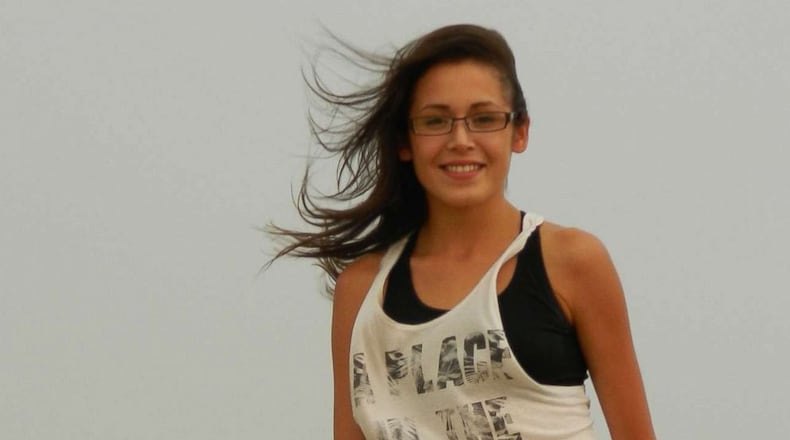Atlanta documentarian Payne Lindsey, after two hugely successful “Up and Vanished” true-crime podcast seasons focused on missing white women, wanted to expand his scope to a person of color.
He noticed that there was a disturbingly high number of unsolved missing persons cases emanating from Native American reservations. He decided to focus on a woman named Ashley Loring Heavyrunner, who disappeared in 2017 after a party in Browning, Montana.
The Loring case did get some media attention at the time, and the FBI even looked into the case. While a $10,000 reward was offered at the time, the trail went cold.
“I felt like indigenous people are some of the most underserved in our country, especially when it comes to the missing and murdered,” Lindsey said in an interview with The Atlanta Journal-Constitution. “No matter what happens, we have a big platform and we can shine a light on this case and expose more people to this growing problem.”
Credit: TEND
Credit: TEND
Indeed, this third season of “Up and Vanished,” which debuted earlier this month, has consistently landed in the top 10 on the Apple most popular podcasts. (The third episode of 10 planned episodes came out this week.)
Lindsey is not a cop or a private investigator or even a traditional journalist in his own estimation. During the first episode of the season, he made an unusual confession: He often felt like a fraud.
“I struggle with this stuff,” Lindsey said on the episode. ”Even though I’ve been making true-crime podcasts for a few years now, when it comes to investigating a cold case like Ashley’s, I find myself in a constant state of imposter syndrome.”
Lindsey’s renown came to bear after his investigative work from season one of “Up and Vanished” and all the attention it garnered helped lead to the 2017 arrest of the men responsible for the death of Tara Grinstead, a teacher in Ocilla, Georgia who went missing in 2005.
He said he didn’t want to just do another true-crime murder podcast this time around. He felt personally responsible for helping Ashley’s sister Kimberly find justice.
“My job is to give Kimberly a platform to tell her story, to share her pain with the world, in hopes that something good could come out of this,” he said. “Does someone finally talk? Does someone finally have the courage to come forward and say what they know?”
He adds: “I care more about solving this case than making this podcast.”
Lindsey in an interview said he was “very iffy about this whole monologue. It could be misinterpreted as making it all about me. I’m really not. I figured that this is such a unique and different thing. I would rather fully embrace what this is and the person I am behind the podcast itself.”
Indeed, he decided to do something not remotely journalistic: He and his company, Tenderfoot TV, have put up $50,000 in reward money to encourage people to come forward. He provided a tip line number, but only on billboards within the community around Browning to minimize extraneous “tips” from Internet crazies.
He said so far, his efforts are bearing fruit, and that he believes this case could be solved. In fact, he was back in Montana this week to follow up on leads.
“I have some really strong suspicions on what I think happened,” Lindsey said. “I have pretty credible information to support that. There are more things coming in that could expand that even further.”
Kimberly has been aggressive about finding the killer or killers, seeking media attention and goading authorities to keep an active investigation She even spoke before Congress.
Lindsey said he felt a close connection to Kimberly, which is partially why he chose to focus on this particular case.
Not to say any of this work is easy. Montana is relatively unpopulated. It takes ages to get from point A to point B, often with no cell phone service.
“I’ve had moments while investigating this case where I definitely feared for my life,” he said. “The sketchiest people in these cases don’t want to meet me anyway. So my approach is to go to their house and knock on their door and hope I can get them to talk to me willingly.”
He always brings a producer with him. “The two vs. one always helps when trying to minimize a threat,” he said.
And while investigating the first two cases was challenging enough, this one, Lindsey said, was more difficult “because I’m infiltrating a community already hesitant to talk to outsiders. As a white man walking around a reservation, I’m already different. I had to spend a lot of time with people gaining their trust.”
Lindsey’s podcast company, which he runs with Donald Albright, is also celebrating its fifth anniversary with a recent move to a bigger office up the street from its original home at Ponce City Market. The company now has 12 employees.
The breakout popularity of “Up and Vanished” in 2016 contributed to the rise in true-crime podcasts That genre makes up a majority of Apple’s top 10 podcasts. It also enabled Tenderfoot to become a viable company.
Lindsey and Albright have worked on other well-regarded podcasts as well, including “Atlanta Monster,” about the missing and murdered Black children of Atlanta in the early 1980s, as well as “Radio Rental,” a semi-scripted series that features real people sharing their personal horror stories, with “The Office” star Rainn Wilson as host. They are hoping to turn “Radio Rental” into a TV series.
Albright said Tenderfoot plans to remain an independent company, despite the fact that it’s competing with huge rivals in the podcast sphere like iHeart and Spotify. “We’ve made a conscious decision to reinvest and grow slower,” he said, enabling them to better keep their creative freedom intact.
HOW TO FIND IT
“Up and Vanished,” available now on most podcast platforms including Apple, Spotify, Stitcher and Audible.
About the Author
Keep Reading
The Latest
Featured




